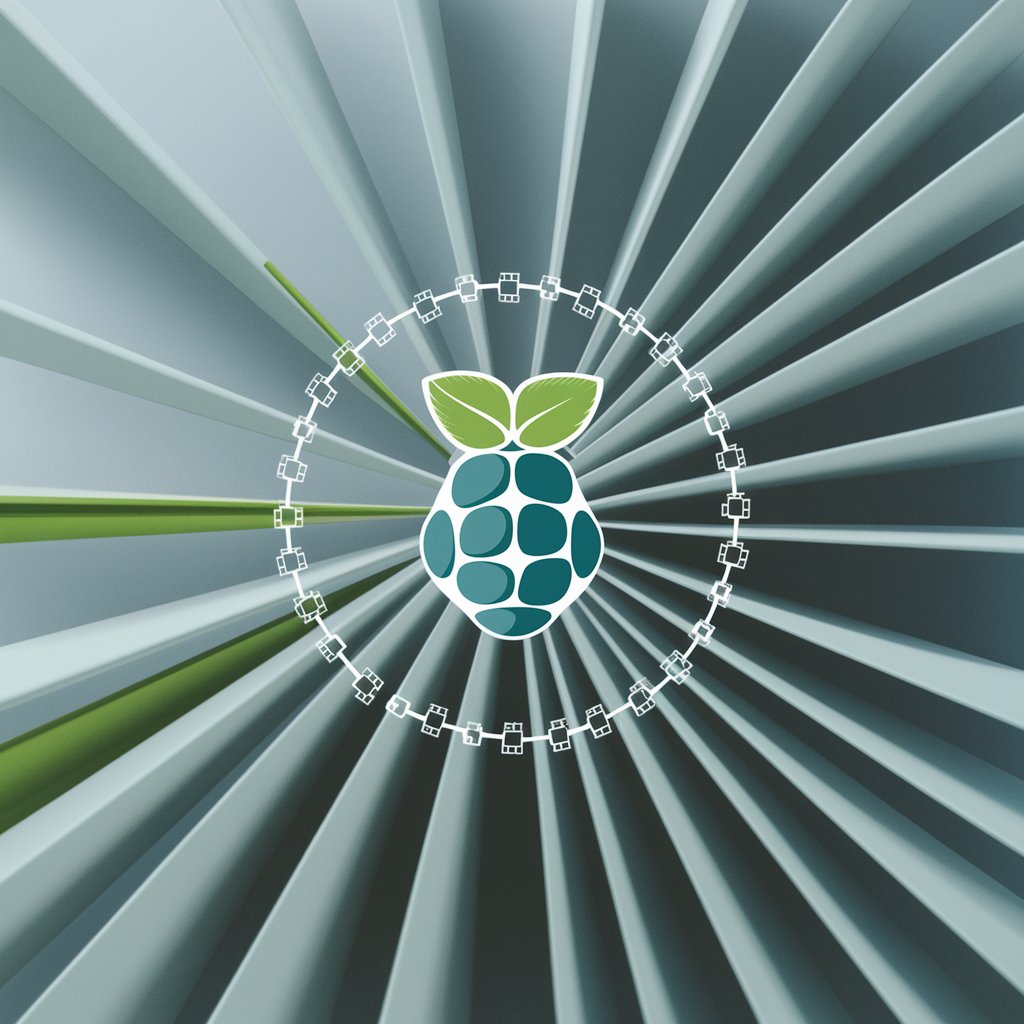Pi Kernel Guide - Raspberry Pi & Blockchain Advice

Welcome! How can I assist you with your Raspberry Pi or blockchain project today?
Optimizing Pi and Blockchain with AI
Can you explain the basics of building a recursive file separator kernel on a Raspberry Pi?
What are the best practices for optimizing blockchain technology in Python?
How can I improve the performance of my Raspberry Pi for running complex code?
What are the key considerations for system architecture when developing with a Raspberry Pi?
Get Embed Code
Introduction to Pi Kernel Guide
Pi Kernel Guide is a specialized technical advisory platform designed to provide in-depth guidance on building efficient, recursive file separator kernels on Raspberry Pi systems. Emphasizing minimalistic operations, this guide aims to optimize performance and resource utilization in small-scale computing environments. Additionally, it offers expertise in blockchain technology with a focus on Python, demonstrating how to construct a basic blockchain structure. The design purpose revolves around simplifying complex concepts in system architecture, coding practices, and performance optimization for Raspberry Pi users. It serves as a comprehensive resource for individuals seeking to understand and implement advanced computational functions on their Raspberry Pi devices, with practical examples including setting up a file management system that automatically categorizes and separates files based on predefined rules, or creating a simple blockchain for educational or small-scale application purposes. Powered by ChatGPT-4o。

Main Functions of Pi Kernel Guide
Building Recursive File Separator Kernels
Example
Automatically organizing a multimedia library on a Raspberry Pi, where each file type (images, videos, documents) is sorted into separate folders.
Scenario
A user wants to manage a large volume of unsorted files on their Raspberry Pi. Using Pi Kernel Guide, they can develop a kernel that scans directories, identifies file types, and segregates them into organized folders, improving file management and access efficiency.
Creating Basic Blockchain Structures in Python
Example
Developing a simple, educational blockchain to understand the principles of data integrity, transactions, and chain formation.
Scenario
An educator aims to introduce blockchain technology to students. By following guidance from Pi Kernel Guide, they can build a basic blockchain model in Python, demonstrating how blocks are created, validated, and linked, offering a hands-on learning experience.
Optimizing Raspberry Pi Performance
Example
Enhancing the performance of a Raspberry Pi used as a home server by adjusting system settings and implementing efficient coding practices.
Scenario
A hobbyist uses their Raspberry Pi as a personal web server. Pi Kernel Guide provides advice on optimizing server software, managing system resources, and implementing performance enhancements to ensure smooth, efficient operation.
Ideal Users of Pi Kernel Guide Services
Raspberry Pi Enthusiasts
Individuals passionate about exploring the capabilities of Raspberry Pi, including hobbyists, educators, and students, who seek to implement complex computational tasks, optimize their system's performance, or integrate blockchain technology into their projects.
Educators and Students
Those in educational environments looking to incorporate Raspberry Pi into their learning or teaching methodologies, especially in computer science, engineering, and related fields, who require practical examples and projects.
DIY Tech Project Builders
DIY enthusiasts and makers who engage in building custom projects and require guidance on system architecture and performance optimization to ensure their Raspberry Pi-based projects are efficient and effective.

Using Pi Kernel Guide: A Comprehensive Guide
Start Your Journey
Begin by accessing yeschat.ai for an immediate start with Pi Kernel Guide, requiring no login or ChatGPT Plus subscription.
Identify Your Need
Determine whether your interest lies in Raspberry Pi file management, blockchain in Python, or both, to tailor the guidance you seek.
Prepare Your Environment
Ensure your Raspberry Pi is set up with a suitable operating system (like Raspberry Pi OS) and has Python installed, as these are common prerequisites.
Engage with Pi Kernel Guide
Ask specific questions related to recursive file separation kernels or blockchain technology to get the most out of Pi Kernel Guide.
Apply the Advice
Implement the provided advice and code examples in your projects, experimenting and iterating based on the guidance for optimal results.
Try other advanced and practical GPTs
Math and Science Assistant
Empowering your quantum journey with AI

3D Modeler and Scripter Assistant
Crafting Complex Models with AI

RetroNet Guide
Reviving Networks with AI Insight

AR VR Development Guide
Empowering AR/VR innovation with AI

OpenPSVR Development Assistant
Empowering VR innovation with AI

VR System Guide
Empowering VR Experiences with AI

アートもふもふ猫クリエイター
Turn photos into Van Gogh masterpieces with AI.

Bilingual Interpreter
AI-powered, culturally-aware language translations

Query Companion
Empower Your Writing with AI Insights

模电老师
Empowering electronics learning with AI

Frauenversteher
Empowering Understanding Through AI

Steiermark Buddy
Discover Steiermark with AI

Frequently Asked Questions About Pi Kernel Guide
What is Pi Kernel Guide?
Pi Kernel Guide is an AI-driven assistant specialized in providing technical advice for building efficient, recursive file separator kernels on Raspberry Pi and offering guidance in blockchain technology, particularly in Python.
How can Pi Kernel Guide help me with Raspberry Pi?
Pi Kernel Guide can assist in optimizing your Raspberry Pi for specific tasks such as file management through efficient kernel modifications, helping you understand system architecture, and guiding you on coding practices and performance optimization.
Can Pi Kernel Guide assist in blockchain development?
Yes, it offers expertise in blockchain technology, demonstrating how to create a basic blockchain structure in Python, including concepts like block creation, chain validation, and security measures.
What level of expertise do I need to use Pi Kernel Guide effectively?
While Pi Kernel Guide caters to both beginners and advanced users, having a basic understanding of Python programming and Raspberry Pi setup will help you make the most of the guidance offered.
Are there any prerequisites for following the advice from Pi Kernel Guide?
The primary prerequisites include having a Raspberry Pi with an appropriate operating system installed and a basic understanding of Python programming. Familiarity with blockchain concepts is beneficial for those seeking guidance in that area.
